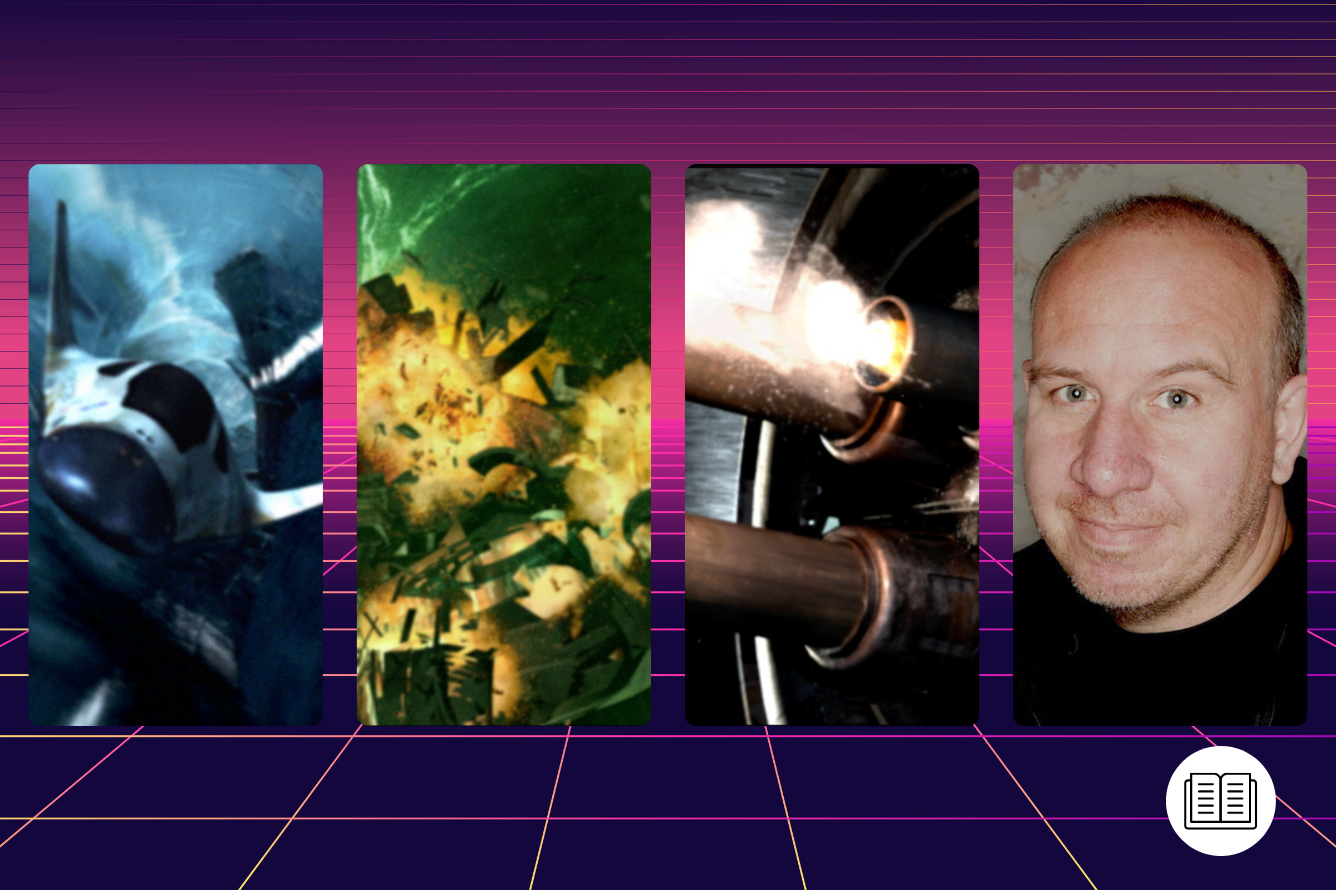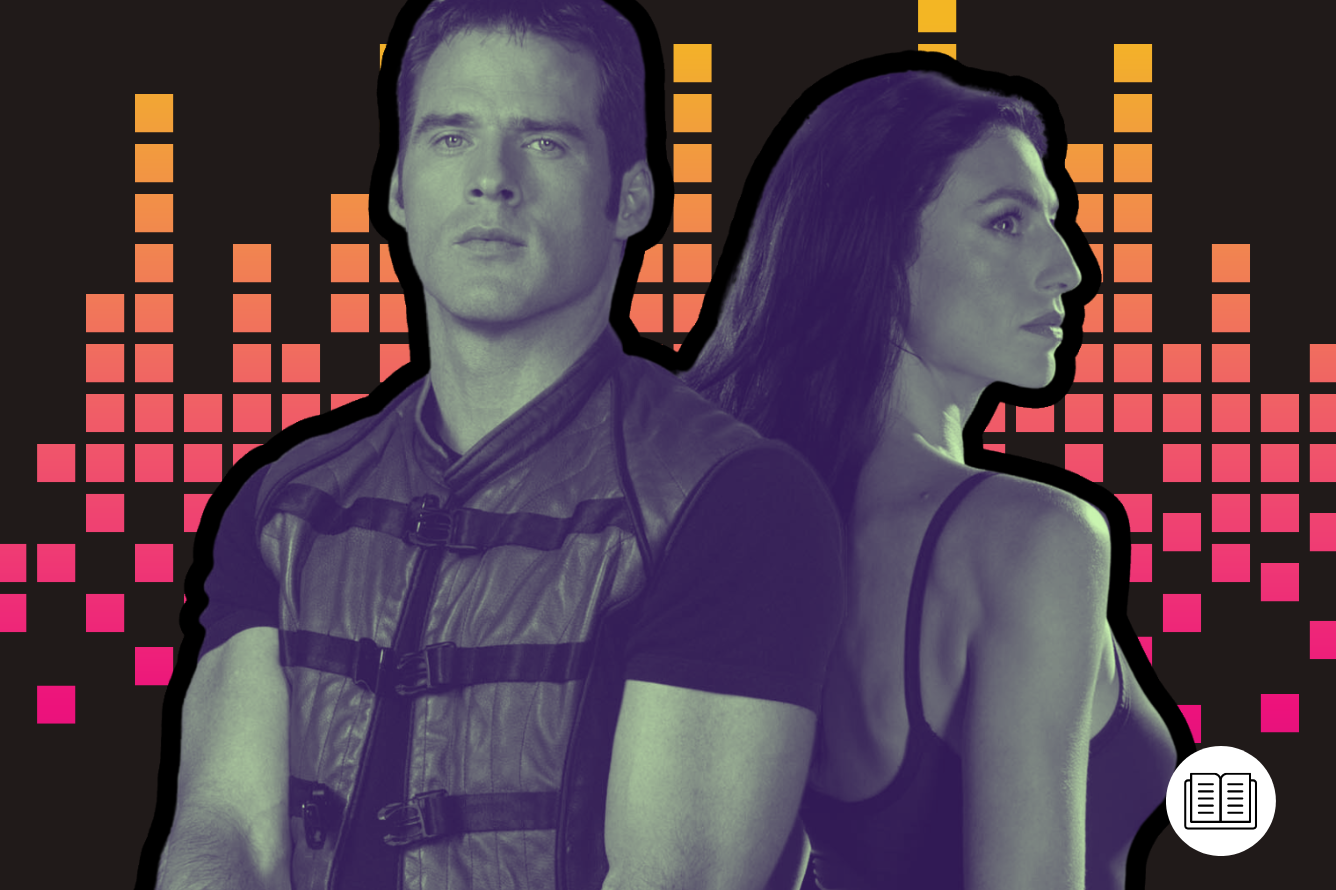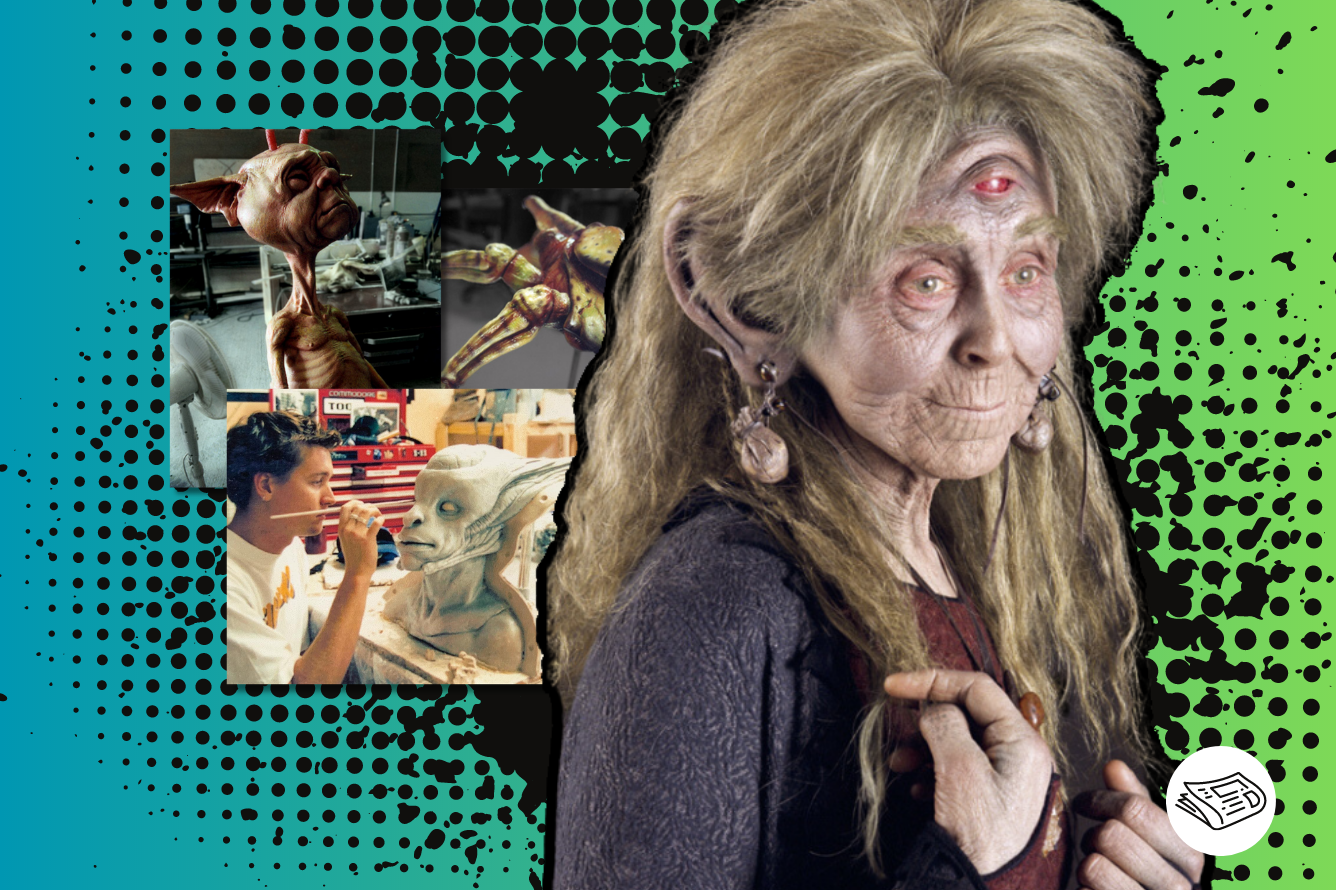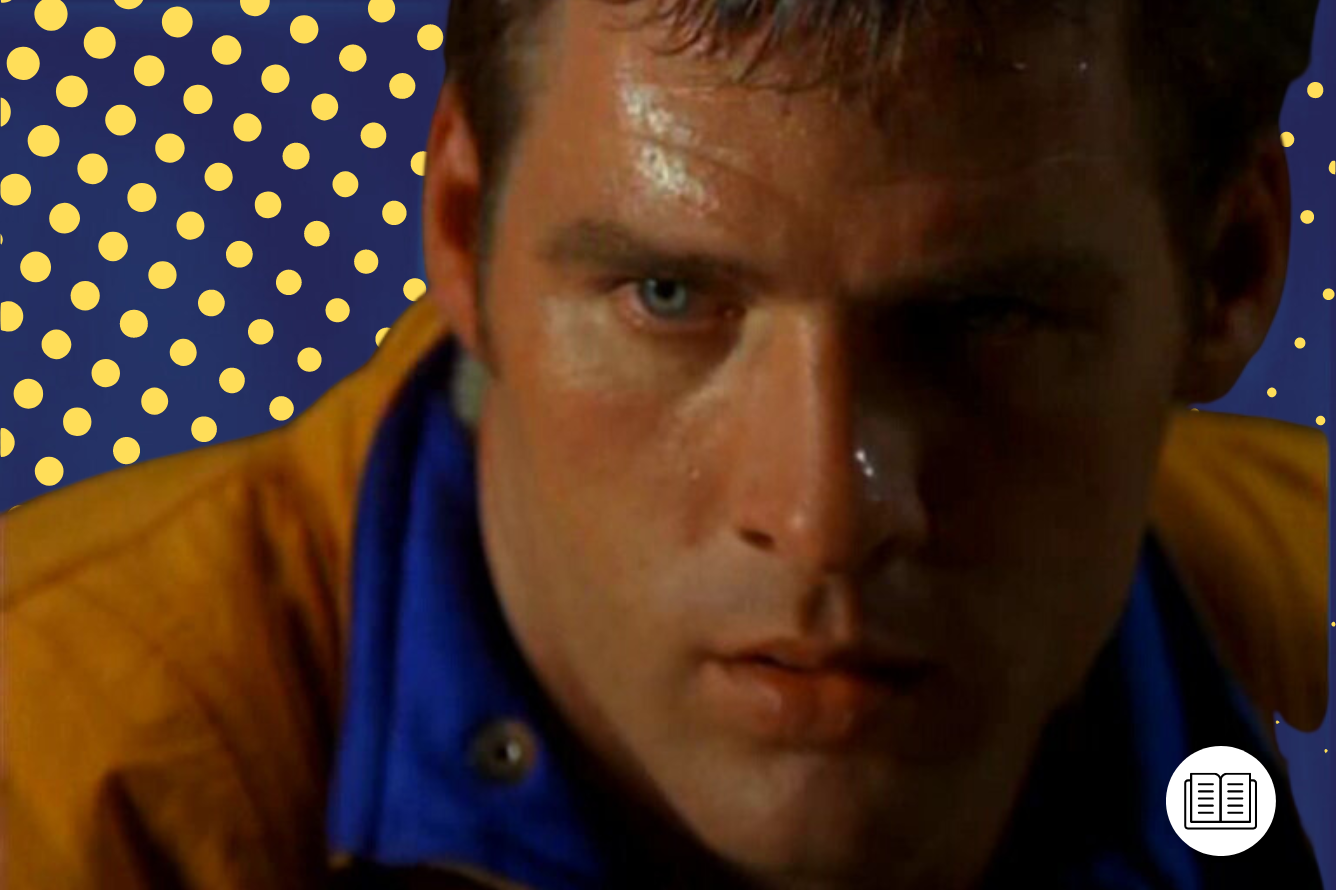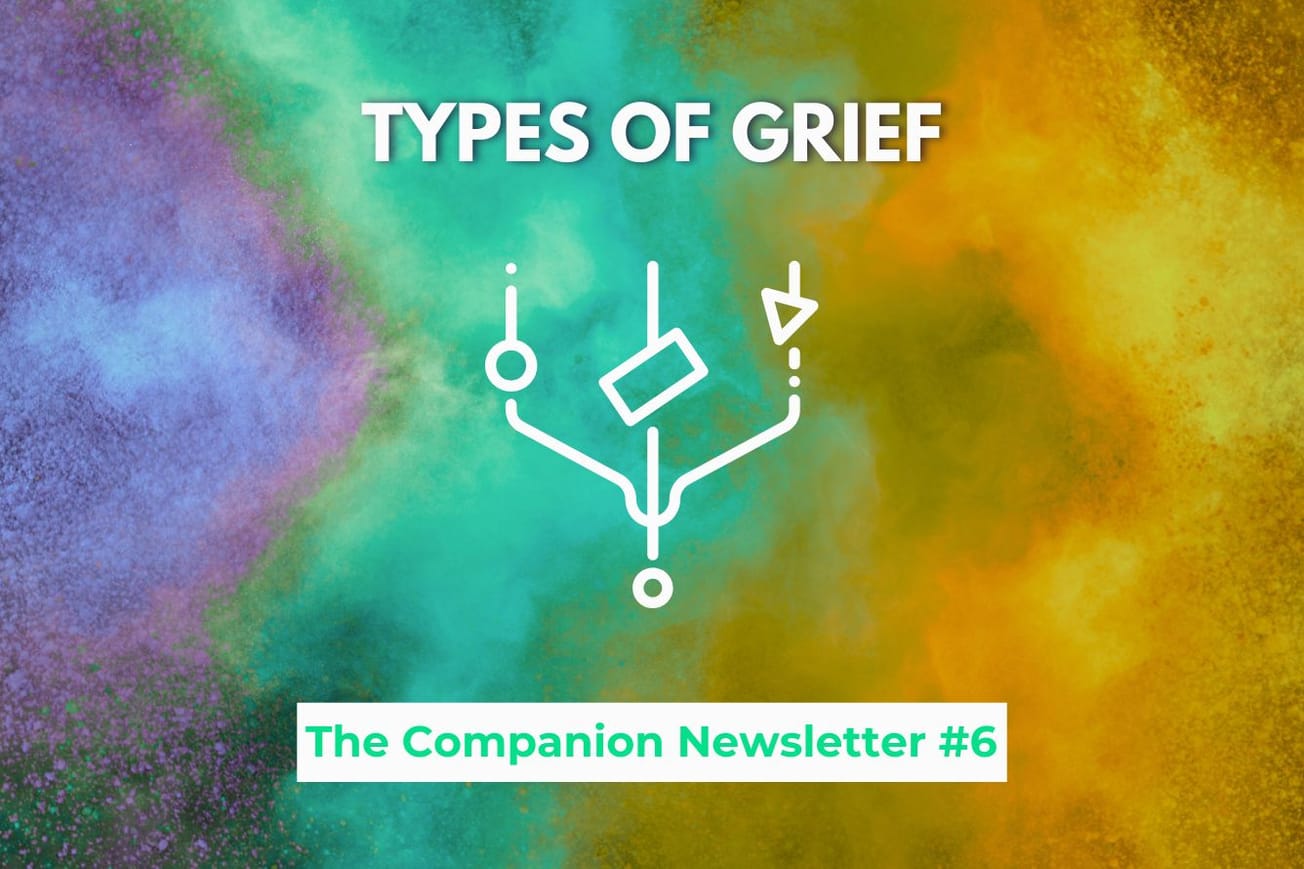Additionally, this article deals frankly with trauma, self-harm, and suicide. If you are affected by the content, we'd encourage you to make use of the resources provided by the British mental health charity, Mind.
An astronaut and astrophysicist plunged into a surreal world of very alien aliens, plant priestesses, flatulent emperors in exile, and cold-blooded space fascists, the root of Ben Browder’s Farscape alter ego John Crichton is among the oldest of space opera tropes. The swashbuckling Earthman in a strange new world is the basis of Buck Rogers, Flash Gordon, and Crichton’s near-namesake, shirtless swashbuckler John Carter of Mars.
Airing on the other side of self-aware shows like The X-Files and Buffy the Vampire Slayer – which popularized bringing soap opera sensibilities and heavier arcs to a traditionally episodic genre, John Crichton was different from his predecessors. The creative decisions made reflected a consideration of how an ordinary person might react to extraordinary – and horrific – circumstances. I was in my teens when Farscape first aired – I loved it, of course – but watching it more recently brought a different perspective, one which was at times incredibly difficult and incredibly raw.
I grew up around depression and grew up with anxiety. I’ve experienced trauma and have at various stages (literally and metaphorically) run from it, tried to shrug it off or pack it tight into a suitcase at the back of my mental cupboard. This only served to kick the problem further down the line where nurtured by bad decisions and bad people (and I include myself in their ranks), my trauma grew strong enough to wrench itself free from its chains.
At the current tally, it has cost me jobs, friendships, and family. Don’t worry, I won’t keep talking about myself. We’ve all lived a life, right? Let’s talk about John Crichton instead, to reflect as he did in ‘Terra Firma’ (S4, Ep13):
“And everyone is telling me – how different I am. They’re right. But they don’t have a clue why. They can’t know… what I’ve seen. What I’ve done – what’s been done to me. They can’t know what’s out there waiting for them and I can’t tell them, because they wouldn’t believe me. Hell if I tried – they’d lock me up. Frell – I’d lock me up.”
Introducing the Neural Clone Storyline
The ‘neural clone’ arc makes its home in three blocks of episodes which stretch from the end of Farscape Season 1 to the beginning of Season 3, although the embers are fanned throughout the show’s run. In the episodes ‘Nerve’ (S1, Ep19) and ‘The Hidden Memory’ (S1, Ep19), John and the impulsive powder-blue Chiana (Gigi Edgley) venture into the belly of the beast, the Peacekeepers’ Gammak Base, posing as a Peacekeeper officer and his servant.
They find their infiltration aided by an old ally, the titular ‘PK Tech Girl’ (S1, Ep7), Gilina Renaez (Alyssa-Jane Cook).
A canny insider overriding security scans can only cloak them so far and John is quickly noted by the newly introduced big bad Scorpius (Wayne Pygram) – a sort of S&M Skeletor – who straps him into the Aurora Chair. This device extracts memories by force and the more the victim resists, the more painful the experience is. Reluctant to betray Gilina, he withholds his memory of her, inciting Scorpius to keep pushing, convinced that something critical is being denied. (Scorpius’ main objective is snatching the secrets of wormhole technology which the Ancients buried in John’s subconscious without his awareness, so he suspects whatever is being kept from him is of similar strategic value.)
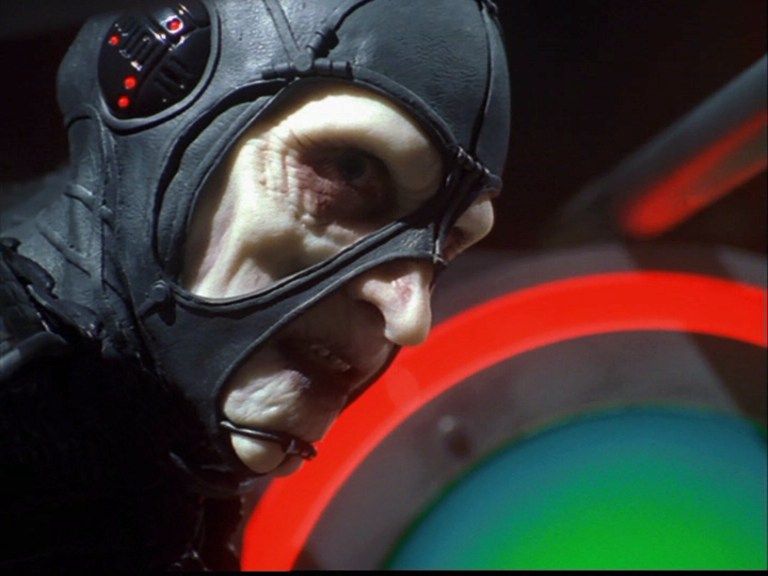
Obviously, they escape, but the long-term consequences of the experience are soon made abundantly clear.
The introduction of a new regular in John’s cellmate Stark (Paul Goddard) points the way. An alien empath whose rationality has been eroded by torture and his exposure to the suffering of others, he rants about John intruding on his side of the cell and has a possessive attitude to the Aurora Chair. Later he removes his crusty Mad Max-meets-Phantom of the Opera-style mask to bathe John in a warm glow that calms his suffering. Stark reveals that he has stayed alive – although it meant two years and 100 painful sessions in the Aurora Chair – by withholding a memory from his tormentors. In these quieter scenes, Stark is established as a fellow traveler but one who is much further along that road. Stark’s lucid moments are few and far between. He’s a warning of John’s future as much as he is his accomplice and those moments where they share understanding see John at his most unpredictable.
Pinned down during the firefight on the Gammak Base’s surface, John and Stark compare notes on the secrets they’ve guarded against the probing of the Aurora Chair – John’s illicit kiss with Gilina back in ‘PK Tech Girl’ and Stark’s memory of childhood. Both so trivial prizes for the suffering they’ve endured, they laugh hysterically and continue to laugh as they return fire.
This wild laughter is a stress response called an incongruent affect – emotional reactions inappropriate to the situation – and is a by-product of disorders rooted in trauma. These reactions, such as a disregard for his own safety only grow in intensity over Season 2 as his Florida-born Southern swagger increasingly gives way to bravado and high-risk behaviors. Although there’s a case to be made that the entirety of Season 1 represents trauma – how else would you react to a one-man space mission going wrong and planting you in the middle of some interstellar game of cat and mouse? – in the aftermath of ‘The Hidden Memory’, John’s behavior reflects that of someone in the grip of a psychological crisis.
“John’s time in Scorpy’s comfy chair is very much a triggering event,” explains Ben Browder, who very kindly added his thoughts to this article during the writing. “Though the build-up of stresses can be observed throughout Season 1. He has been hunted, shot at, abused, marooned, tossed, turned inside out… finally tortured. This episode represents a breaking point.
“With Farscape, there was no reset button. Actions, deeds, and words have consequences. What follows the ‘chair’ are consequences.”
In this situation, the traumatic event isn’t processed in the way that other memories are. The response is a reaction, a survival mechanism. Your brain isn’t treating the events as business as usual but has pulled an older and less sophisticated lever to help you cope with the danger it feels – rightly or wrongly – that you’re in. The mind’s failure to process the memory at the time is what defines it as trauma. We all have triggers for memory. In the wake of a traumatic event, the brain finds the associated memory, not as it should be, but raw and unprocessed. In response to a trigger – a reminder of the trauma, certain words, or situations – the brain attempts to process the difficult memory as if it were unfolding in real time.
Crichton’s Mental Health Crisis
A few episodes later, whilst under the influence of a sightless alien T’raltixx in the firm fan-favorite ‘Crackers Don’t Matter’ (S2, Ep4) John began to hallucinate Scorpius who encouraged him to turn on his friends like a fetish club Jiminy Cricket. Against the backdrop of a petty squabble over excessive cracker consumption, John shoots D’Argo (Anthony Simcoe), restrains Chiana in a scene laced with a shocking level of sexual threat, and is then goaded into opening up on Aeryn (Claudia Black). T’raltixx’s role in the atmosphere of heightened paranoia is soon exposed and John – like the audience – is encouraged to treat the manifestation of Scorpius as being a neatly resolved by-product of the interloper’s mental manipulations. (Although to be fair, this larger arc hadn’t yet been plotted so the audience had no way of knowing what lay ahead.)
“As we moved into Season 2 of Farscape, Crichton was increasingly erratic in his behavior,” Ben picks up. “Though in part, this was something we might have discussed creatively, in another part it might have had to do with the internal reality in my head occupied by John, and the writers’ sensitivity to the conditions they have created.
“I’m not saying it wasn’t a controlled or volitional descent… But part of the actor’s job is the creation of another person. This created person exists in pathways beyond the cognitive. It is an intuitive process. Some of the best writers intuit the state of their characters, and may find themselves wondering where those words came from?”
“[‘Crackers Don’t Matter’ screenwriter] Justin Monjo created a hallucinatory Scorpius. As an actor, I latched onto this specter and saw it as a driving obsessive force. It’s the thing you hate to think about, but that you can’t banish from your mind. My response was to incorporate the hallucination. When [executive producer] David Kemper became aware of what I was doing, his response was to integrate the hallucinations into the larger story arc… All props to David!”
In the three-episode ‘Look at the Princess’ (S2, Ep11-13), the crew shelter from the Peacekeeper pursuit at a royal wedding on a neutral world inhabited by glittery space Australians. Through the magic of storytelling, John finds himself cast as the groom and embroiled in dynastic intrigue in which he must fend off a royal rival, avoid becoming a living statue, and escape the attentions of Scorpius. With Aeryn giving him mixed messages (a moment of intimacy/hair-sniffing at the start of the story ended in a kiss and then a brutal shutdown), he’s resigned to the wedding as a way of escaping the Peacekeepers. Despite pushing him away, she’s furious that he has been successfully pushed away. In their heartfelt exchange, he admits the trauma he has endured at the hands of Scorpius is far deeper than he previously let on:
“He’s in my head. Back of my mind. Corner of my eye. He scares me Aeryn, and I can’t shake it.”
Another otherwise benign standalone episode ‘Beware of Dog’ (S2, Ep14) is interrupted by John confronted by a repressed memory of Scorpius doing something to his brain whilst he was restrained in the Aurora Chair. During the hunt for alien vermin infesting Moya, he glimpses another leather-clad phantasm behind Aeryn and discharges his pulse pistol over her shoulder. Not the most emotionally aware of the company, even Areyn realizes something is wrong and she presses him for an explanation:
John: I’ve been, uh – having these – Well I wouldn’t exactly call them hallucinations – I’ve been having these… flashes of Scorpius.
Aeryn: Flashes? Like memories?
John: No they’re not memories. It’s more like he’s talking to me. Have you ever been in a – in a crowded room and everybody’s talking all at the same time, so you can’t hear anybody and suddenly someone says your name, and then – (he snaps his fingers) – like crystal, you hear every word they say. No matter how far away they are, it’s like they’re talking only to you.
Aeryn: What is Scorpius saying to you?
John: He says he’s gonna get me. He says he already has, I just don’t know it yet.
Aeryn: Why didn’t you kill him when you had the chance?
John: I tried. Tried – but I couldn’t. Something stopped me. Something inside.
Aeryn: Crichton, if you need help-
John: I’ll ask. Just like you do… Aeryn don’t worry. I’m not gonna lose my mind. It’s all I’ve got left.
“[Screenwriter] Naren Shankar nails this scene in his script,” Ben says. “What had been simmering in the underworld of almost half of a season of Farscape is made manifest.”
As Aeryn turns to leave, the episode ends with the illusionary Scorpius sitting himself down opposite John. Over a chessboard – you don’t need that decoding, right? – the two exchange words, their first dialogue since the deniable delusions of ‘Crackers Don’t Matter’. The two speak again in ‘A Clockwork Nebari’ (S2, Ep18) when John’s mental hitchhiker helps him shrug off the Nebari mind cleansing – a process which rivals the Aurora Chair for its psychological kick in the nads as a device plucks out his eyeballs and attaches implants to the stem.



